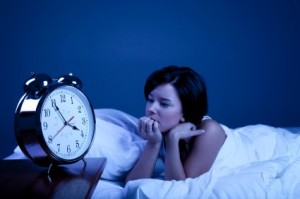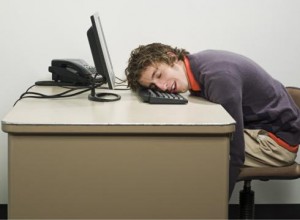Insomnia. By Our Worn Out Student Pharmacist, David Brokaw.
Sleep. That blissful third of my life of which I have absolutely no memory. Did you know that our brains secrete neurotransmitters to paralyze our bodies so that we don’t act out our dreams1? The more I think about sleeping, dreaming, and the brain, the more I am fascinated by how we work, brain-wise. But what can we do when our brain isn’t able to follow its own instructions to settle down and get to sleep?
That brings us to my topic for today: insomnia.
Insomnia ranks third behind headaches and the common cold for what ails us. Adults need eight or more hours of sleep a night, but, on average, 6.9 hours is all that we get. And, as we age, this problem becomes more and more common. In 2005, 11% of adults managed insomnia with the help of alcohol, 9% used an over-the-counter sleep aid, and 7% used a prescription medicine for sleep.2
Sometimes, when I get stressed over a big deadline, I have trouble sleeping for a few days. But when the stressful day has passed, my sleep pattern returns to normal. This is transient insomnia.
There are also two other insomnia patterns. Short-term insomnia can last 1-3 weeks. Additionally, there is chronic insomnia, lasting more than 3 weeks. The latter is often a secondary problem of another medical condition, psychiatric disorder, or substance abuse. Problems with sleep could be caused, for example, by sleep apnea, diabetes, heartburn, heart disease, high blood pressure, asthma, chronic pain, anxiety/depression, and stimulant use, like caffeine or smoking. People with medical problems should seek treatment for the underlying medical condition first, which may improve their ability to sleep.
One or more of these strategies could help you wrestle with your particular insomnia demon:
Good sleep hygiene: 1. Avoid large meals later in the evening.
2. Avoid exercise 2-4 hours before bedtime.
3. Dim the lights, lower the volume on the television or radio, and relax.
4. Regulate the temperature in your bedroom to a comfortable level.
5. Avoid caffeine and smoking 4-6 hours before bed.
6. Avoid alcohol, which may help you feel drowsy, but can cause increased nighttime awakenings and bathroom visits.
7. Go to bed at the same time each night and rise at the same time each day.
8. Avoid napping during the day.
Underlying medical condition: Ask your physician if your insomnia could be related to a medical condition or a current medication. Seek treatment if your sleep loss is negatively affecting your day-to-day functioning. Sleep apnea is a common breathing problem and an often underdiagnosed cause of insomnia.
Prescription options: Medications called ‘hypnotics’ are available for short term use for insomnia (e.g., Valium, Ambien, Lunesta, Sonata). They are modestly effective in helping you fall asleep and stay asleep, giving you 10-30 minutes more sleep on average for up to 6 months. However, some of these medications can have addictive qualities and could be harmful if used in the long term. Long term use has been compared to smoking in both the increased risk of mortality and cancer3. As we get older, too, these medications are even more risky if used on a long term basis4. This is a discussion best had with your doctor.
Complementary therapy: Melatonin has limited empirical evidence, but on a 0.3-0.5 mg starting dose one hour before bedtime, this supplement may help you fall asleep in the short-term only (jet-lag). Do not use melatonin in pregnancy.
5-hydroxytryptophan or 5-HTP, for short, is a supplement that should be avoided, because it has no proven efficacy and is potentially harmful. I wouldn’t risk it.
Other herbal products are equally unproven with limited safety data (valerian, kava, chamomile, ginseng, lavender, hops, lemon balm, passionflower.) Acupuncture, tai chi, and light therapy may help, but, again, no studies have confirmed any benefit.
Over-the-counter options: Benadryl (diphenhydramine) is the ingredient in “PM” products, sometimes labeled as “sleep aids”. Benadryl is an antihistamine widely used to induce sleep, but may cause “morning after” effects (hard to get moving, a feeling of being tired) in some individuals. The usual dose is 50 mg, but some people use 25 mg, 30-60 minutes before bedtime. Do not use Benadryl for more than 2-3 consecutive nights without taking ‘time off’ from the medication to re-assess improvement in your sleep pattern. Benadryl, plus a pain reliever (Tylenol PM, Advil PM), can help if insomnia is accompanied by mild pain.
Best option (in my opinion): Daily exercise – it’s good for you and it helps you sleep better, feel better, think better, and live longer!
I think I just put myself to sleep…..
References:
- http://www.jneurosci.org/content/32/29/9785.full.pdf+html?sid=8ac6964b-8a2c-4fa7-aec3-cbbc6bc880f2.
- 2005 National Sleep Foundation survey.
- http://www.huffingtonpost.com/jerry-siegel/are-sleeping-pills-good-f_b_446804.html
- http://www.ncbi.nlm.nih.gov/pubmed/22371848



